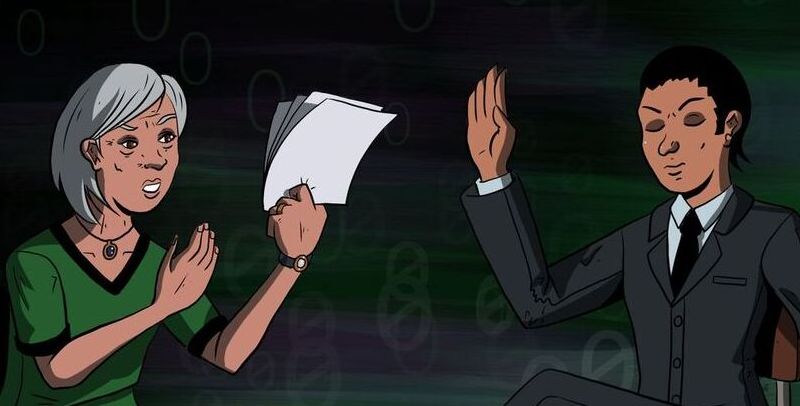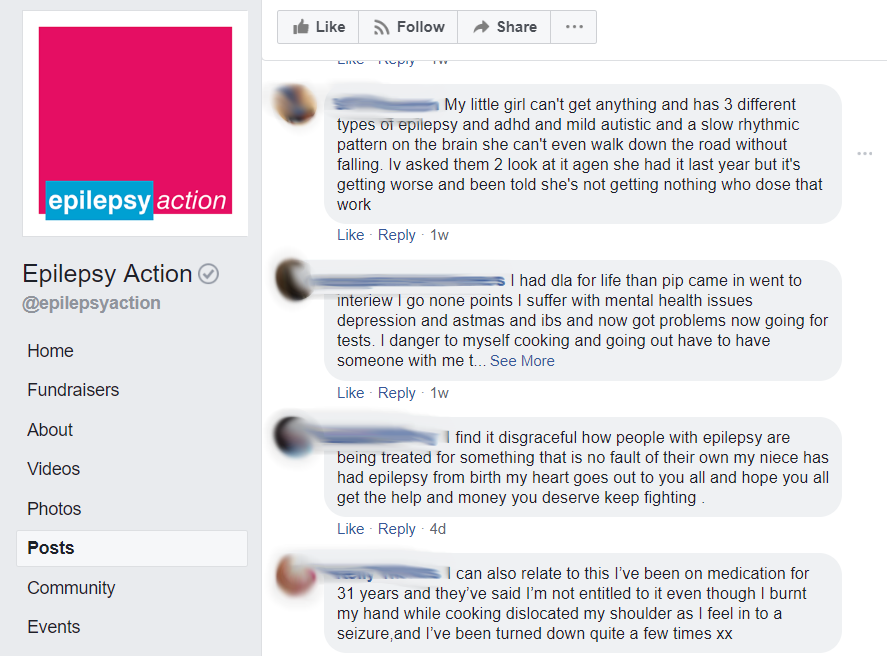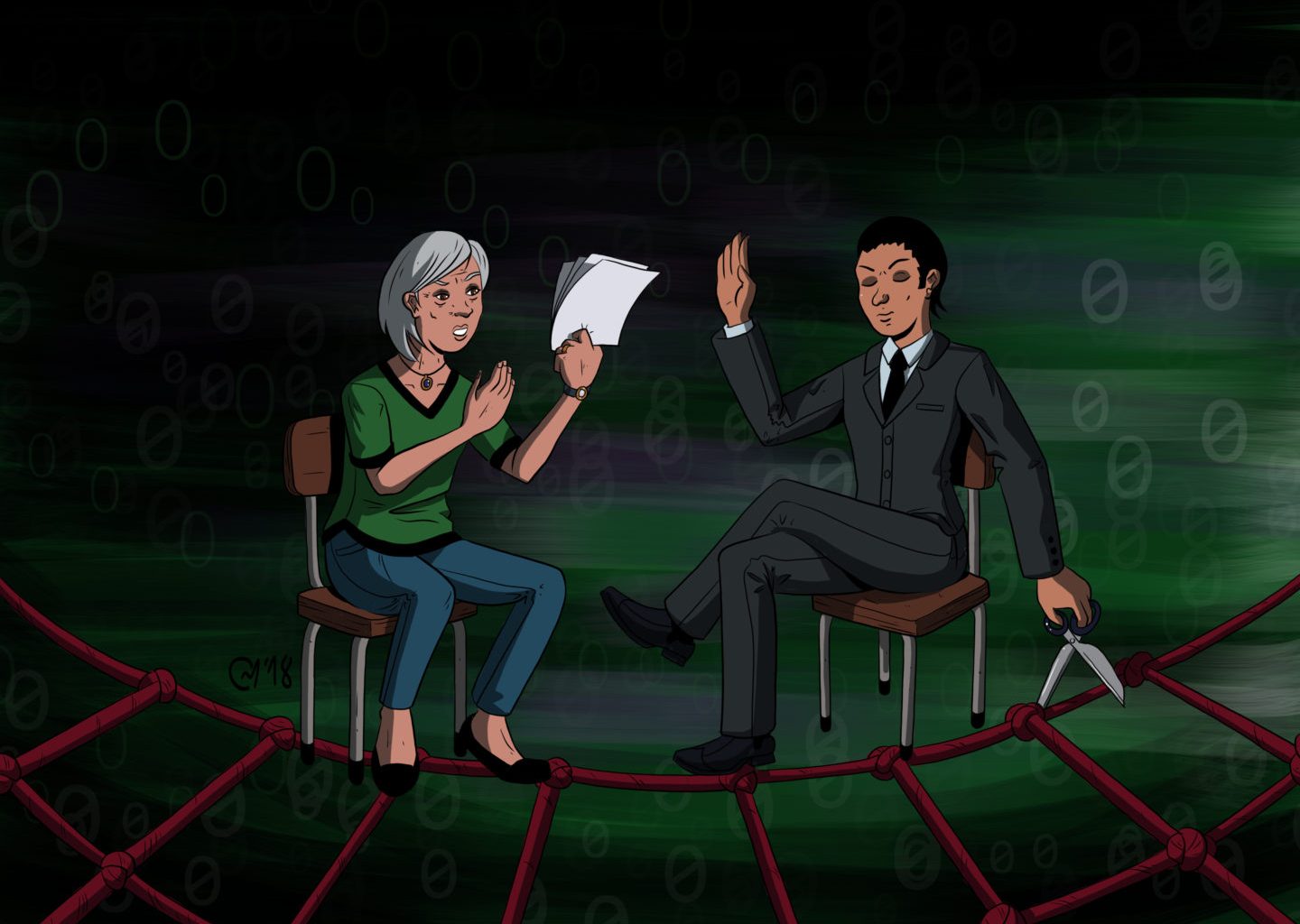The UK government’s disability benefits system has come under fire repeatedly in recent years. Since moving from the Disability Living Allowance to the Personal Independence Payment (PIP) system, there have been widespread reports of increased isolation and poverty.
It has been roundly criticised too by the Scottish Government, which has however had to delay the launch of its own devolved social security system.
Earlier this month The Ferret revealed the extent to which Scotland’s poorest communities had been hardest hit by UK disability welfare cuts. We estimated that over £56 million had been lost in annual payments by nearly 17,000 people.
Revealed: £56m cuts to disability payments hit Scotland’s poorest hardest
Meanwhile, a letter revealed that assessors, in Scotland employed by Independent Assessment Services, part of the French multinational company ATOS, were being paid bonuses for completing extra assessments.
Westminster Work and Pensions Committee Chair Frank Field MP said in response: “Contractors insist that offering their assessors extra cash to complete more assessments each day has in no way compromised the service that claimants receive. But we have received thousands of accounts of shoddy, error-ridden reports that have slipped through the net.
“A claimant whose PIP report stated she walked her dog daily – despite not being able to walk nor owning a dog – is a case in point. If the contractors cannot consistently deliver quality reports under normal circumstances, how can they hope to do so under this extra pressure?”
This shaggy dog tale was just one of the thousands of stories the committee was sent as part of its investigation into the new system – the most responses by far ever received by a select committee inquiry.
But who are the people behind these stories?
The Ferret spoke to two people who have fallen foul of the PIP system, by either having their applications turned down, or downgraded.
*****

Johan is sixty years old and lives in Fife, about six miles outside Dunfermline. Much of her life has been spent caring for other people. But over the last few years, she has found herself unable to work because of the onset of epilepsy, but has been turned down for any disability support.
“My husband was a serviceman, so that meant I had to be a full-time Mum. But after my youngest went to nursery I started doing voluntary work at the school. That led to paid work as a classroom assistant. I really loved that but had to give it up after two years as my husband was posted down to England and we had to move. I was still healthy then.
Later we moved back up to Scotland but by then my Mum and Dad were really poorly, so I took on their care. But during that time my husband left and I was left with no income. I looked after my Mum until she died, and then I started working in a care home. It was only three months after she died, and I probably didn’t give myself enough time to grieve.
I was working night shifts, they were 12 hours, so really tiring, especially by my age at that time. It was during a night shift that I had a seizure. At first I thought I was having a dizzy turn, I was very sick. The senior care assistant took me through to another room, and then they took me away in an ambulance – they thought I was having a stroke.
I ended up going home, but later I went to the doctors. The doctor said that it might be epilepsy and did some tests. I thought it couldn’t possibly be epilepsy – but it turned out that it was. I was in shock, I was reeling from the diagnosis. That was when they suggested that I should apply for PIP (Personal Independence Payments).”
Johan ended up having to leave her care home job because she couldn’t do it any more, but after 15 months managed to get shifts working at McDonalds.
“I really loved that job, really enjoyed it, but after two years it started getting tougher and tougher. I had two more seizures, luckily at home not during shifts, but I ended up having to retire. I applied for PIP before then, but it took six months before I finally got an appointment at a centre in Dunfermline.
My friend took the day off work to take me there, and when I went in and went to the desk they told me ‘It’s been cancelled.’ I told them that I hadn’t cancelled it, but they said ‘No, we did.’ No apology or anything. Speaking to other people, they told me to make sure I get a morning appointment. The afternoon ones are always cancelled, they said.
I got another appointment but couldn’t ask that friend to take me again, so I asked another friend. She said yes she would take me but she asked me to call them before we left to make sure the appointment is going ahead. I did that but when I went in they were ready to call if off again. I asked them not to cancel it, my friend had brought me in specially, and in the end it went ahead.
They asked me lots of questions that didn’t seem at all relevant to epilepsy. It’s like walking around with a timebomb in your head. But I ended up getting zero points. I’m in a few epilepsy groups and I hear everyone being treated the same.
My last seizure was last July. I was just sitting down to watch a documentary about Princess Diana, but suddenly I was violently sick. The next thing I knew it was quarter to one in the morning. When I called the epilepsy nurse, she said it was definitely a seizure. I also had a major seizure at a concert in Glasgow – I was diagnosed with temporal lobe epilepsy, but this was definitely a reaction to the lights.
I can remember the interval, but then the next thing I remember is being in the car halfway back to Fife. Apparently I didn’t collapse or lose consciousness but I have no memory of any of it.
I can’t work just now because I never know when it’s going to happen. I’m living alone, so I’ve really got to look after myself.
I’m lucky in some ways, it could be a lot worse. I’ve got a roof over my head because I’ve got my own house, and I’ve got a small pension because I was working full time until I was 31 and had my eldest son. I can’t drive or go on holiday. But I’m better off than some other people – there are some people who have seizures every day – and I’m scared to think how they are affected by this.

The forms were really confusing as well. And the questions. For example when they asked me if I could cook for myself I said yes. But actually I can cook for myself but I don’t always have confidence to go food shopping in case I have a seizure when I am out. And I could have a seizure when I’m cooking with heat, what would happen then?
I had an incident just two weeks ago when I had to call the gas network emergency number. I was cooking for visiting family while they played in the garden. When they came in, they said that there was a really bad smell of gas. The whole property was thoroughly checked by the gas network and everything was fine! Presumably I hadn’t turned the hob off properly. It left me a bit shaken. My son stayed the night with me to make sure I was ok!
I had no idea about epilepsy before I was diagnosed – you can die from it. But people are ignorant about invisible illnesses. The cost of giving disability benefits to people is not high, so why are so many people now being turned down. It’s just wrong.
I could apply again, but the experience really made me feel embarrassed and ashamed and I feel like there are people who need it even more than me.
I know I am entitled to it, and it’s going to be a long six years just existing before I can get my state pension, but no amount of money is worth that kind of humiliation.”
*****
Helen is 54 and lives in Galashiels in the Scottish Borders. She has had severe Myalgic Encephalomyelitis (ME) for over 25 years and is bedbound for 95 per cent of the day. She gets out of the house a couple of times every month at most. When she first became ill, she was working as a mental health advocacy worker in Manchester and was newly married with one child. She has been seriously affected by the bringing in of Personal Independence Payments as a replacement for the Disability Living Allowance.
Claimant assessments are carried out by Independent Assessment Services (part of the French firm ATOS), while the Department of Work and Pensions makes the final decision on the success of claims.
“I’ve had ME since 1992, and I’ve been unable to work since 2001. I also have endometriosis and interactive thyroid. After I first got ill, I moved back to the Scottish Borders and worked flexibly part time on a self employed basis running a knitwear business, and I had another daughter. However, after a hysterectomy in 2000, my health deteriorated so I was unable to sustain work at all.
I have been signed off work since 2001, and I first got Disability Living Allowance (DLA) around that time. When I moved initially from DLA to PIP, the assessment nurse seemed to ‘get’ my illness and how I was affected, and to accept the things I said I was unable to do e.g. cook. It wasn’t perfect, for example, no account was taken of my cognitive issues, but I felt understood and believed. I got Enhanced Daily Living and Mobility but just a short award of two years because I was undergoing tests and treatments for my gastrointestinal issues and the nurse felt there was the potential for successful treatment.
I found the whole process incredibly stressful, the pressure to be able to ‘explain’ your whole life in a physically demanding situation. I am 99 per cent housebound, and only leave the house on average a couple of times a month. I routinely spend 95 per cent plus of my day in bed or on the recliner and can only sit in a normal upright chair for very short periods and suffer exacerbation of symptoms after such effort.
I wasn’t allowed a home visit by ATOS, now IAS, because I can attend GP appointments – but I only go to the GP when I am ‘well enough’ and then it is five minutes with someone who knows your medical history. Not an hour of having to explain and justify your whole existence in a pressured situation.
The second assessment was a farce. On my renewal form I put ‘no change’ for everything as I have a long-term chronic illness and there had been no change and it was a mere 13 months between assessments. The assessor gave me a false sense of security by saying she didn’t understand why I’d been called back for reassessment so soon.
My first appointment had been cancelled with 38 minutes’ notice due to snow, I was rescheduled later that week and the assessor seemed stressed so maybe she was fitting too many people in. While she seemed to be listening to and understanding what I explained, while typing, when I got the award letter and subsequent copy of her report, it really was not fit for purpose.
I had given her details, medical terms, percentages of not being able to do things and reasons why not. The bits she had written in her own words were semiliterate and had no detail and no understanding of what I had said to her. For example, she dismissed Post Exertional Malaise as being ‘tired the next day’. I wish.
The report bore no resemblance to my actual life. The observational sections were clearly from a set template, not in her own words and had no medical relevance. The ridiculously detailed physical exam section was clearly a cut and paste based on a perfunctory two-minute physical exam while I remained seated. It was not fit for purpose and again bore no medical relevance to how I am affected by my illness.
As a result, I was knocked down from enhanced to standard mobility only. Nothing to help with daily living at all and bear in mind I’ve been receiving higher rate mobility since 2002.

The whole process of filling in claim forms makes me think about how limited my life is and makes me question my whole existence, and what my life has become. I get triggered by brown envelopes. I think about euthanasia. My marriage broke down under the pressure, my daughter moved back home after being at Manchester University. She cooks for us and encourages me to eat and provides social support but gets stressed and angered by the benefits process, especially as she came with me to the PIP assessment. She is a self employed tattoo artist who has her own health issues including endometriosis.
I rarely see other people. My younger daughter is at Glasgow University, she provides social support through social media, messaging. She also has health issues that impact on her life and studies.
My mandatory reconsideration was dismissed in a patronising ‘you say but we say’ way, and my MP was also batted away dismissively. I approached the Citizens’ Advice Bureau who referred me to the local council’s financial inclusion team to get a representative to take me through to appeal. However, the thought of having to physically go to a tribunal was daunting and the whole process has dominated my life and thoughts since the renewal form came last September, making it impossible to properly pace and manage my condition.
I was lucky in so far as I had an inheritance from my mum that has protected me from the financial implications in the short term, so I didn’t have to cut back on extras, food, heating, supplements and so on.
Yesterday afternoon I received a phone call from a man from the DWP to say they could give me two extra points for dressing, based on the medical evidence of reduced power in my arms and legs, that would entitle me to standard daily living. The other things I tried to explain, but he kept repeating ‘they don’t take that into account’. I felt like it was bartering and a game of chicken – but considering the poor assessment it was based on and having no new medical evidence, I accepted.
I feel disappointed I’m settling but relieved to be free of the worry of a tribunal hanging over me. The award is until January 2022. It feels far enough away – for now.”

Both Helen and Johan have had some level of protection through inheritance or owning property. As The Ferret reported earlier this month, PIP refusals have adversely affected the poorest areas of Scotland, and many people will have no such protection. Many people did not want to tell their story on the record as they felt too vulnerable.
But go on social media where many people with disabilities stay connected, and you’ll see stories of inaccessible assessment centres, of cancellations, of botched assessments.
But things aren’t likely to improve in the short term, as the Department from Work and Pensions has renewed the assessment contract for another two years with the option of bringing assessment services back in house then.
FFS Explains: the changing benefits system in the UK and Scotland
In Scotland, there is some hope that a future devolved system might be different. What would Helen and Johan like to see from a new system?
Helen: “I would like a Scottish system to be based on helping and supporting people, not adversarial, suspicious and cost cutting. Longer awards and no repeated assessments for people with chronic conditions. Please just let people live their best lives without such tortuous processes.”
Johan: “I just want a fairer system and to live more of a life. I don’t like to turn down invitations but my confidence to go out and see people has really been affected. They should be taxing big corporations more heavily and using the money to support people who need it.”
The Department for Work and Pensions defended its disability assessments. “PIP takes a much wider look at the way a person’s health condition or disability impacts them on a daily basis,” said department spokeswoman, Samantha O’Kane.
“The quality of assessments has risen year on year since 2015, but one person’s poor experience is one too many. We’re committed to continuously improving assessments, and have announced we’re piloting the video recording of PIP assessments with a view to rolling this out widely. Under PIP 30 per cent of claimants receive the highest rate of support, compared to 15 per cent under DLA.”
She pointed out that Scotland had “significant welfare powers”, including key disability benefits. “The Scotland Act 2016 gave the Scottish Government the powers to top-up existing benefits, to pay discretionary payments and to create entirely new benefits altogether,” she said.
ATOS has been approached for a comment.
If you’ve been affected by a PIP refusal or downgrading, some tools that might help are here and here, or contact your local Citizens’ Advice Bureau or MP.
This story was updated at 17.00 on 21 June 2018 to add comments by the Department for Work and Pensions.














